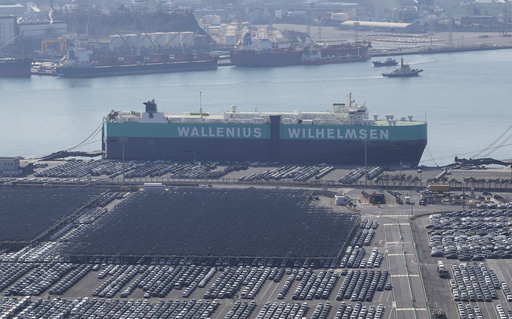
SEOUL, South Korea — Officials from South Korea have urged the Trump administration to exempt their nation from plans to impose aggressive tariffs on its trading partners. They highlighted that South Korea is already maintaining low tariffs on American goods thanks to the existing free trade agreement between the two countries.
During a visit to Washington this week, Deputy Trade Minister Park Jong-won conveyed this request amidst discussions with officials from the White House, the Department of Commerce, and the Office of the U.S. Trade Representative. However, the South Korean Trade Ministry did not disclose any responses received from the U.S. representatives.
Park underscored the contributions of South Korean businesses to the U.S. economy through significant investments and pointed out that they are already implementing low duties for free trade partners, including the United States. He urged that South Korea be excluded from the U.S. plan to establish reciprocal tariffs as well as increases in duties on imported steel and aluminum, as stated by the trade ministry.
In a related economic assessment, South Korea’s prominent economic research institute downgraded its growth forecast for the nation’s economy for the second time since November due to apprehensions regarding the widespread tariffs implemented by President Trump, which are intended to overhaul global trade dynamics.
The Korea Development Institute, a state-run entity, anticipates that South Korea’s economy will grow by just 1.6% in 2025, which reflects a reduction of 0.4 percentage points from its earlier predictions. The institute’s economists believe that the tariffs on steel and aluminum will not significantly impact South Korea’s economy since such goods represent less than 1% of its exports to the U.S. However, they expressed concerns that potential increases in tariffs for semiconductors and automobiles could more adversely affect the nation’s trade-dependent economy.
In response to these developments, South Korea’s acting president, Choi Sang-mok, convened a meeting with trade and foreign policy experts to explore the possible implications of Trump’s tariff measures. These discussions included reciprocal tariffs as well as potential duties on select products such as semiconductors, cars, and pharmaceuticals.
Choi, who also serves as South Korea’s finance minister, directed officials to analyze the reactions of other major economies like the European Union, Japan, and China to Trump’s trade policies. Additionally, he emphasized the need for South Korea to effectively communicate its stance to U.S. officials.
As of 2024, South Korea’s trade surplus with the United States reached $55.7 billion, and reports indicate that the country’s tariff rates on manufacturing imports from the U.S. hover around zero percent.

